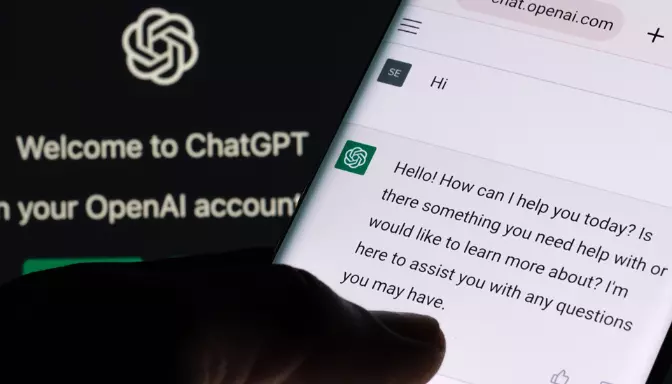Diksia.com - As we increasingly rely on AI-powered chatbots for various purposes, it’s natural to wonder about the privacy and security of the information we share with them.
ChatGPT, a language model developed by OpenAI, is one such chatbot that has gained popularity for its advanced capabilities.
In this article, we’ll delve into the privacy measures of ChatGPT and answer the question: are ChatGPT questions private?
What is ChatGPT and how does it work?
ChatGPT is a state-of-the-art language model developed by OpenAI. It uses deep learning techniques to generate natural language responses to text-based input.
ChatGPT can be used for a wide range of applications, from language translation to conversation generation. It’s a powerful tool that has been praised for its ability to mimic human conversation.
Does ChatGPT store my information?
ChatGPT does not store any information about its users. When you interact with ChatGPT, your messages are processed in real-time, and the system generates a response based on the input it receives.
Once the response is generated, the input is discarded, and the system doesn’t store any record of it. This means that ChatGPT doesn’t keep any logs of your conversations, and your information remains private.
What privacy measures does ChatGPT have in place?
ChatGPT has several privacy measures in place to ensure that your information is kept private and secure.
Firstly, the chatbot uses end-to-end encryption to protect your messages from being intercepted by third parties.
This means that your messages are scrambled during transmission, and can only be read by the intended recipient.
Secondly, ChatGPT uses a process called tokenization to further protect your information.
Tokenization involves breaking down your input into small, discrete units called tokens. These tokens are then processed by the system to generate a response.
By using tokenization, ChatGPT can protect your information by processing it in small, discrete units that are difficult to intercept or decode.
Finally, ChatGPT is designed to only respond to messages that are sent directly to it.
This means that the chatbot won’t respond to messages that are sent to other users or third-party services. This further ensures that your information is only accessible by you and the chatbot.
How can I ensure my privacy when using ChatGPT?
While ChatGPT has several privacy measures in place, there are also some steps you can take to further protect your information.
Firstly, you should avoid sharing sensitive information, such as your name, address, or financial information, with the chatbot.
While ChatGPT is designed to keep your information private, it’s always best to err on the side of caution and avoid sharing sensitive information with any online service.
Secondly, you should be careful when using ChatGPT on public networks, such as public Wi-Fi hotspots.
Public networks can be vulnerable to hacking, which can put your information at risk.
If you need to use ChatGPT on a public network, consider using a virtual private network (VPN) to encrypt your connection and protect your information.
Lastly, you should be aware of any third-party integrations that ChatGPT may have.
For example, if you’re using ChatGPT through a messaging app or website, make sure to read the privacy policy and terms of service for that app or website.
Some apps or websites may collect and share information with third-party services, which could potentially compromise your privacy.
Conclusion: Is ChatGPT a secure chatbot?
In summary, ChatGPT is designed with several privacy measures in place to ensure that your information is kept private and secure.
The chatbot does not store any information about its users, uses end-to-end encryption and tokenization to protect messages, and is designed to only respond to messages sent directly to it.
While ChatGPT is a secure chatbot, it’s important to take additional precautions to protect your information, such as avoiding sharing sensitive information and being careful when using public networks.
By taking these steps, you can ensure that your conversations with ChatGPT remain private and secure.
In conclusion, if you’re using ChatGPT for personal or professional purposes, you can feel confident that your information is being protected by advanced privacy measures.
However, it’s always best to stay informed and take precautions to protect your information whenever using any online service.
By the end of this article, you’ll have a better understanding of the privacy measures of ChatGPT and how you can protect your information when using this chatbot.






